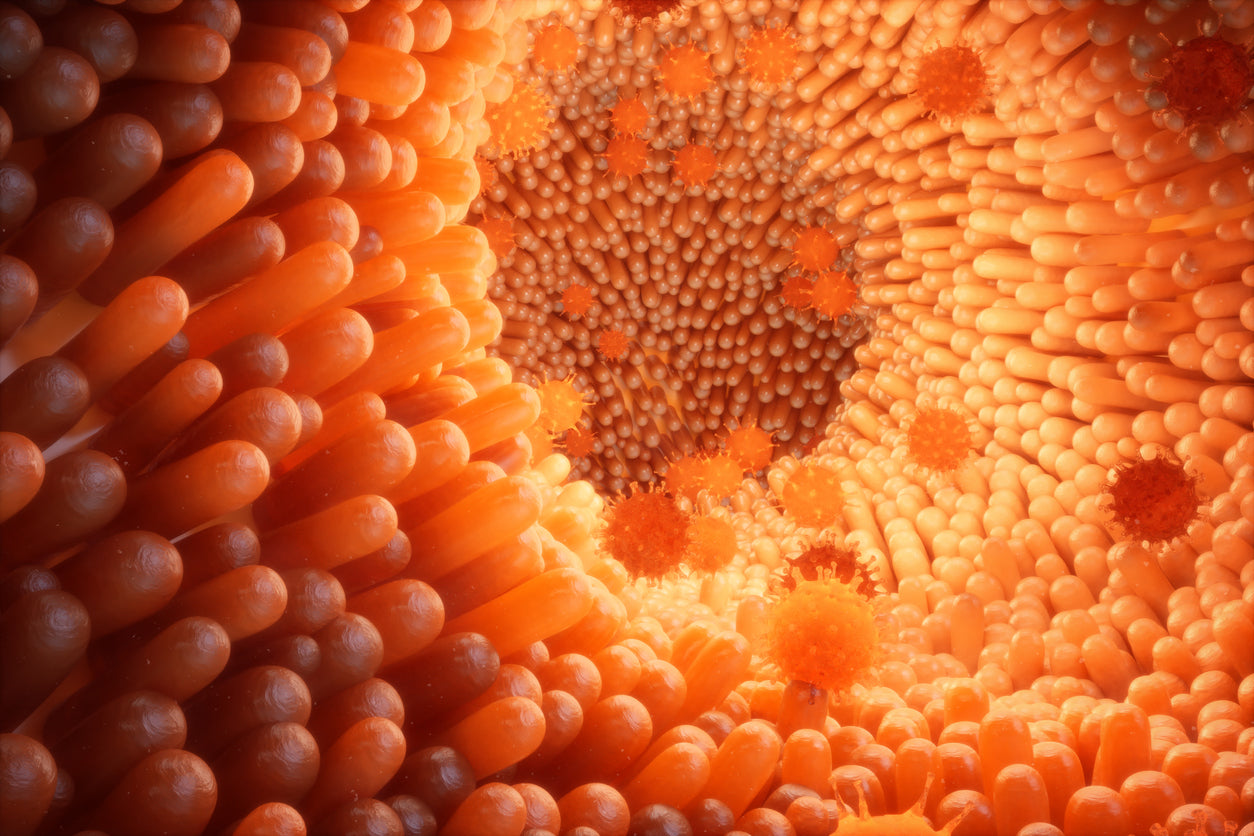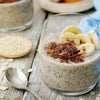Why digestive enzymes are a MUST for healthy gut function

Let’s face it – some foods, even those designated as healthful “superfoods,” have a downside. For example, cruciferous vegetables – including Brussels sprouts, cauliflower, broccoli, and kale – are prized by dietitians, natural health experts, and holistic physicians alike for their cancer-fighting compounds and impressive content of antioxidants, vitamins, and minerals. Yet, this “A-team” of veggies can be difficult for some individuals to digest – leading to unwanted bloating, abdominal cramping, and flatulence (gas). And the problem isn’t confined to cruciferous veggies, legumes, and beans. Even raw dairy products can cause digestive issues.
If these foods are problematic for you, you could always avoid them – but you then would miss out on their substantial health benefits. Fortunately, there is a simple solution. Digestive enzymes can help break down food and lead to better absorption of nutrients, while helping to alleviate unpleasant gastrointestinal outcomes like, gas and bloating.
Specific enzymes may help resolve tricky digestive issues
Although the body produces digestive enzymes naturally (primarily through the pancreas, stomach, and mouth), there are times when the demand outstrips the supply. In addition, some people are deficient in particular enzymes needed to break down specific foods.
Digestive enzymes are divided into three primary categories: proteases, lipases, and amylases. Proteases, also known as proteolytic enzymes, break down proteins into peptides and amino acids, while lipases help metabolize fats. As for the amylases, their responsibility is to handle carbohydrates, reducing them to simple sugars. Other digestive enzymes include cellulase - which helps to handle fiber - and lactase, which helps to break down lactose or milk sugar. (In fact, lactose intolerance is caused by a shortage of lactase).
As for those troublesome cruciferous vegetables and legumes? A group of enzymes known as alpha-galactosidases excels at breaking them down.
Once digestive enzymes have dissolved food into smaller particles, the nutrients are absorbed through the small intestine and ferried into the bloodstream.
Help from nature: Take advantage of these dietary sources of digestive enzymes
If you are looking to boost your digestive enzyme levels, certain tropical fruits can help. Papayas and pineapple are rich in papain and bromelain, a potent pair of antioxidant, anti-inflammatory, and proteolytic digestive enzymes. Ripe mangos are a good source of amylase and actinidian, an enzyme in the papain family.
Avocados are not only packed with beneficial monounsaturated fats - but have an additional health-promoting trick up their sleeve. They also contain lipase - which, as you may remember – helps to metabolize fats. (So much for the false concept that avocados aren’t a diet-friendly food!)
And finally, bananas - in addition to being a prebiotic food that supplies nutrients for “friendly” gut bacteria - contain amylases. Just make sure to seek out organic, non-GMO produce whenever possible.
Dynamic duo: digestive enzymes and probiotics can work together
Over-the-counter enzyme supplements are generally made from animal pancreases or an array of natural molds, yeasts, bacteria, fungi, and fruits.
Some digestive enzyme formulations are fortified with probiotics, which are live organisms that support the health of beneficial bacteria. Probiotics assist digestive enzymes by replenishing gut bacteria that break down fiber, thereby helping to restore efficient digestion. Desirable probiotic strains include Lactobacillus acidophilus, Lactobacillus plantarum, and Lactobacillus salivarius.
For good measure, some digestive enzyme products also contain traditional herbal carminatives (gas-relievers) such as fennel, ginger, and peppermint. (Incidentally, stomach-soothing chamomile tea is also a mild natural carminative).
Research on digestive enzymes has been encouraging
While more study is needed, many scientists believe that supplementary digestive enzymes have merit for alleviating bloating and flatulence. In a review published in Proceedings of the Mayo Clinic, the authors commented that “emerging clinical data seem to support many of (digestive enzymes’) purported benefits.” This is not news to natural health experts, who have been advising digestive enzyme supplementation for years.
By the way, while routine bloating and flatulence may be relieved by over-the-counter digestive enzymes, certain medical problems (such as exocrine pancreatic insufficiency, pancreatic cysts, and pancreatic cancer) can cause extreme shortages of digestive enzymes, which can be accompanied by malnutrition, deficiencies of essential vitamins, and severe gastrointestinal symptoms. These medical conditions require the attention of a physician.
If you would like to try supplementation with digestive enzymes, most natural health experts suggest avoiding those that might contain problematic ingredients such as wheat, gluten, hydrogenated fats, artificial sweeteners, and dyes. Look for high-quality products from reputable vendors certified by USP Quality Supplements or the Natural Products Association. As always, consult with a trusted, holistic healthcare provider before supplementing with digestive enzymes.
If you experience discomfort following the ingestion of cruciferous veggies or dairy products, you might find that digestive enzymes can offer relief – and are certainly worth a try.
Editor’s note: Improve your digestion and gut health by using the finest digestive enzymes on the market. Click here to learn more about LuvByNature Digestive Enzymes
Sources for this article include:






